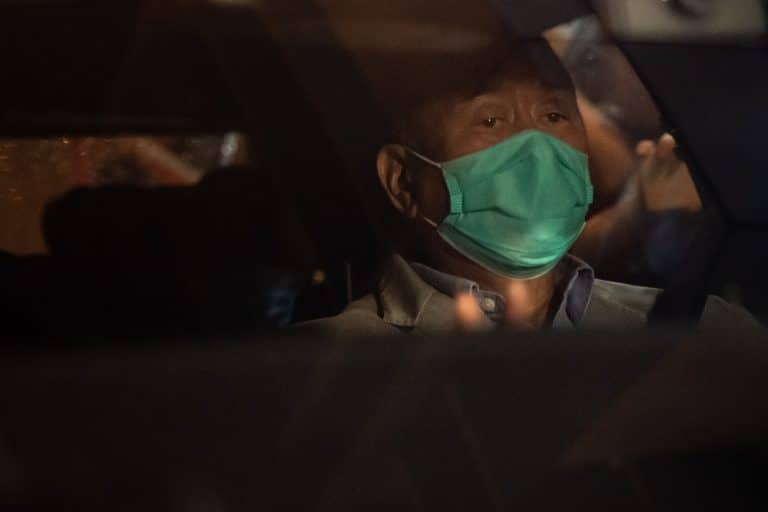
This article was originally published by Radio Free Asia and is reprinted with permission.
Hong Kong’s highest court on Thursday denied bail to pro-democracy media mogul Jimmy Lai, nearly six months after his arrest for alleged fraud and “colluding with foreign powers” in violation of a draconian national security law imposed on the city by the ruling Chinese Communist Party.
Lai, 73, had been released on Dec. 23 under an HK $10 million (U.S. $1.3 million) bail decision by a lower court to live under house arrest while awaiting trial, but the ruling was revoked a week later by a panel of three Court of Final Appeal (CFA) judges after a legal challenge from the department of justice. Lai had also been granted bail days after his August arrest, but the bail was revoked, and he was rearrested on Dec. 3. In total, he has spent 59 days in jail.
On Tuesday, the CFA’s panel of five judges unanimously ruled that the lower court had granted bail to Lai on an “erroneous line of reasoning” due to a “misconstrued” reading of Article 42 of the Security Law, which states that bail can only be granted based on “sufficient grounds for believing that the criminal suspect or defendant will not continue to commit acts endangering national security.” Common law traditionally allows for the granting of bail unless a judge has reason to believe a defendant may flee or commit another crime while awaiting trial.
The judges said Lai is welcome to reapply for bail before his April 16 trial date because Tuesday’s ruling reflected how the lower court came to its decision, rather than whether he is eligible for bail.
They also ruled that the far-ranging Security Law cannot be amended, despite clauses deemed to run counter to the Basic Law, Hong Kong’s mini-constitution.
Tuesday marked the first time the CFA had ruled on a case related to the National Security Law, which was imposed on Hong Kong in June 2020. Observers said following the ruling that the CFA’s interpretation raises the bar for those charged under the Security Law, placing the onus on the defendant to convince the court to grant them bail.
Lai’s redetention on New Year’s Eve came after an article in the official CCP newspaper, the People’s Daily, hit out at the decision to grant him bail. The media tycoon was the first person to be released on bail after being charged under the National Security Law.
‘Collusion with foreign powers’
Lai had earlier been granted bail on condition that he remain in his home and report to the local police station three times a week, and surrender his travel documents to the authorities. The bail conditions would also have barred him from giving any media interviews, posting on social media, publishing articles, and meeting with overseas officials.
He is accused under the National Security Law for Hong Kong of calling on “overseas institutions, organizations and personnel to impose sanctions or take other hostile actions against Hong Kong or China” between July 1 and Dec. 1, 2020.
Prosecutors have cited interviews he gave to foreign media organizations, including the Wall Street Journal, CNN, and Fox News, as well as comments and accounts he followed on Twitter.
Some of the evidence cited by prosecutors predates the implementation of the new law, including a meeting Lai held with former U.S. Secretary of State Mike Pompeo on July 8, 2019 during a trip to Washington, before the national security law took effect.
China was among the world’s biggest jailers of journalists in 2020, continuing a pattern of total state control over the media begun under CCP “core” leader Xi Jinping, according to press freedom campaign groups.
0 comments :
Post a Comment